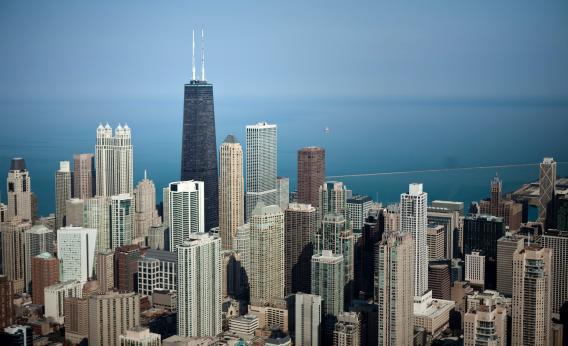It turns out that customers for apartments and condominiums in downtown Chicago aren’t wanting as much parking as developers had thought:
Demand for parking spaces at downtown apartment buildings is dropping precipitously—a shift that’s causing developers to rethink the way they build and market their buildings.
About 40 percent of renters are leasing spaces at Lakeshore East, the Magellan Development Group LLC community that will have eight apartment and condo towers when the last building, currently under construction, is finished, says Brian Gordon, the Chicago-based company’s vice president of development. “We used to project 55 percent,” he says. “We’ve definitely seen a decline.”
One natural response would be for developers to build less parking in the future, thus allowing them to either put up more housing units or make the units cheaper. But that response is actually unlikely to occur because “the required parking for new residential buildings downtown ranges from 0.55 to one space per unit, depending on location.”
Note that one problem with this regulatory minimum is that it makes it harder for existing buildings to recoup the losses previously incurred through overbuilding of parking. In a more flexible environment it wouldn’t matter so much if one building had overshot in its provision of parking, because that would simply allow for other buildings to undershoot and then people could lease a space in a garage across the street (I grew up in a Manhattan household with a car and a garageless building and this is what we did) and it would roughly balance out over time. Also note that demand for parking spaces is relatively low despite the spaces being artificially cheap due to zoning-induced oversupply. Absent the car-promoting legislation, parking would be more expensive and demand for parking spaces would be somewhat lower. Meanwhile, with fewer cars per household there would be more business opportunities in serving non-car households, which would reduce the utility of car ownership on a forward-looking basis.
